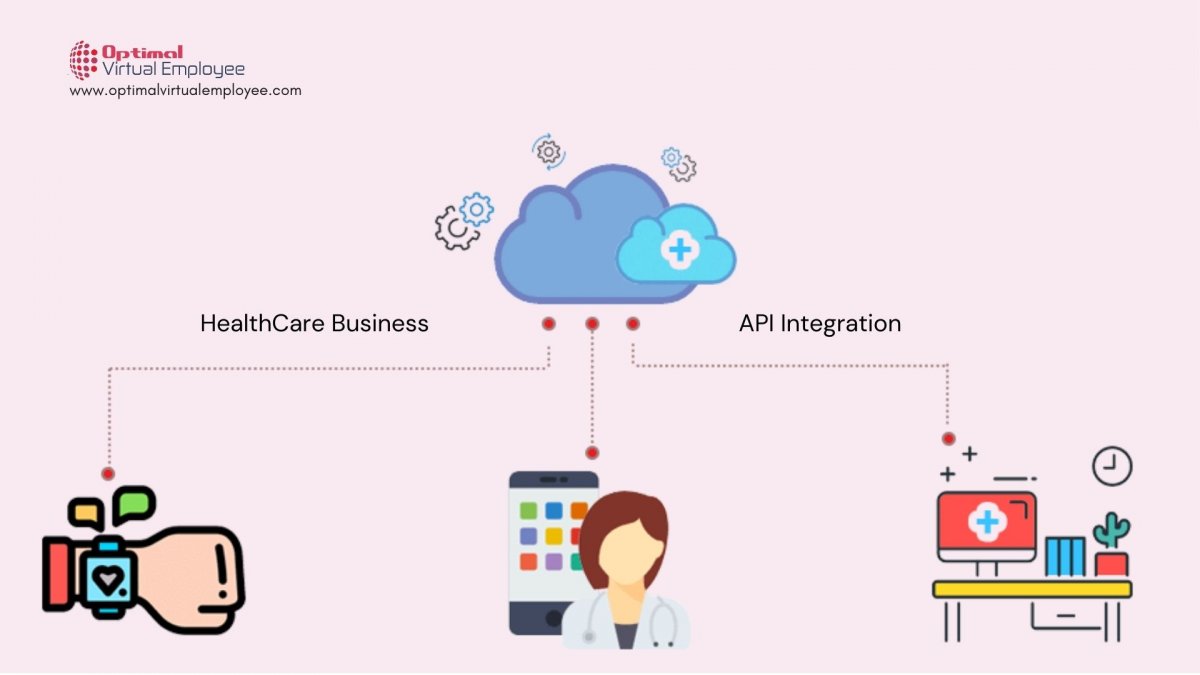The Healthcare data ecosystem is inherently complex. The scattered nature of healthcare data across organizations makes management difficult. This is the reason why it becomes difficult for practitioners and care providers to manage records, engage patients, and deliver results. There is a pressing need for state-of-the-art digital experiences. More than often, interoperability of data suffers even within an organization, leave alone between different organizations.
Moreover, care providers are on the lookout for additional revenue streams, and digital access points serve just that. Only tech-savvy healthcare practitioners can ace the race to curate desirable patient experiences. Building a healthcare app with an API’s help will solve most of these interoperability and caregiving issues. Practitioners access patient information through EHRs.
But the lack of a central patient identifier, patient recognition, and record matching becomes difficult in case the patient changes the care provider.
Most EHRs contribute to data silos and make interoperability challenges. Even payers protect patient data for their own profit and steer away from data exchange. It makes interoperability expensive for providers. Most commercial EHR vendors create custom data entry protocols that hamper their integration with other EHR systems. Advanced technologies are often used to protect patient information, but it requires integration with EHR and HIT ecosystems, which can, in turn, be expensive.
Ready-made API solutions can help build various healthcare apps to help manage patient diseases, schedule appointments and facilitate clinical trials. Custom API development can help medical practices meet the needs of their system.
How APIs Benefit Healthcare Businesses?
API-backed medical app development poses multiple benefits.
-
Developers
Thanks to ready-made API integration tools, healthcare app development is easy as a breeze. App developers can develop high-quality apps at lower costs and in less time with such solutions. APIs used during medical app development can be easily customized to suit the needs of the healthcare business.
-
Hospitals
Care providers can escalate the level of their data structuring with APIs. Third-party software can help them improve the utility of their EHRs. APIs help practitioners consolidate a patient’s healthcare data and improve its accessibility. Other APIs even help in decision making like choosing from the treatment options available on the basis of their diagnosis and their health insurance.
-
Data Scientist
APIs guarantee instant information access and aid research work in the medical field. APIs can amalgamate and process the results from various research and help with discovering advanced therapies after thorough research.
-
Patients
With the help of APIs, data points can be brought together from multiple systems to be linked together. Not only do they back analytics, but they also ensure better results from treatment. Patients can also use the APIs to share their EHR with a new practitioner or facility without the hefty paperwork. Further synchronization of API with healthcare tracking smart devices can update them automatically and accelerate treatments.
Why Do Healthcare Companies Need APIs?
-
Bringing together Doctors and Patients
Many health information allows web and mobile access to diagnostic tools; some research institutions look for easy ways to connect with physicians and patients, medical institutions want to facilitate more accurate patient data, APIs can be used in all these cases.
With APIs, patients can access and report health data for providing a wholesome view of patient data to the practitioner doing the diagnosis. APIs also aid in record-making and managing physician-facilitated data to back up analysis of a healthcare environment and help decision-makers cut overhead costs ensuring better returns.
APIs also help patients access EHRs and make necessary updates. App developers can also build apps to help patients with chronic diseases to monitor their health and help with their clinical trials by pushing relevant information to the practitioners at relevant times. Some apps also assist with treatment compliance by issuing timely reminders for patients and aftercare instructions post-hospital stay.
-
Streamlining Workflow
Custom APIs can ease the workflows at the hospital as it helps in predicting staff requirements, reducing overheads and serving patients in better ways. Record sharing APIs decrease the number of errors and enhance patient care focus, taking it away from paperwork. It also facilitates access to government and research data to aid diagnosis.
HealthCare Business Challenges
Healthcare technologies are a mix of apps, ecosystems, and processes to serve patients and ease processes. With time these systems become old and are often rendered non-interoperable. Moreover, custom API development is highly technical and needs expertise. It requires access to innovative tools for designing, testing, and managing APIs.
In The End
Numerous healthcare businesses are adopting mobile and web apps to ease the way they allow patient access and to collaborate conveniently with partners, support care, guide insurance companies, etc. Patient apps built with APIs engage and connect patients with practitioners. Custom-made APIs allow medical practices a chance to offer their employees innovative tools to streamline workflows and guarantee high-quality patient outcomes.









